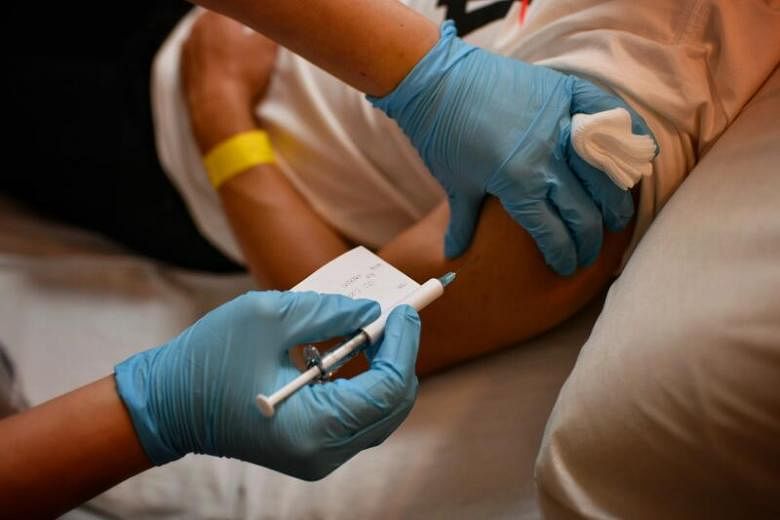SINGAPORE - It is not new for vaccinations to have indemnity and no-fault compensation mechanisms in place to protect both the individuals and companies, while allowing millions to have access to the vaccines.
This looks set to be applied to Covid-19 vaccines as well, with Pfizer obtaining indemnity from the British government against any incidents as countries worldwide start securing the Pfizer-BioNTech Covid-19 vaccine for their people.
Singapore Association of Pharmaceutical Industries president Ashish Pal said at a Straits Times Reset webinar, The A-Z of the Covid-19 vaccine, on Thursday (Dec 17) that this is not new for vaccines.
"You really want to get to a point where you have a very, very effective use of your resources - people and dollars - so that vaccines are actually administered and populations start to acquire immunity. To achieve that, you want to look at two different mechanisms in place - indemnity and no-fault compensation," he said.
No-fault compensation schemes are used when accidents and injuries are regarded as inevitable, and the emphasis is on compensating victims for related expenses - without anyone having to enter the civil justice system and proving another party is liable for damages.
"The indemnity clauses are protecting governments, distributors, administrators and providers, and the no-fault compensation mechanisms are protecting patients. So, you want to create an environment where people feel protected and people feel empowered to go ahead and ask for a vaccine and get the vaccine administered," he explained.
Associate Professor Lim Poh Lian, the director of the High-Level Isolation Unit at the National Centre for Infectious Diseases and a member of the Covid-19 Vaccine Expert Committee, said the argument is not between the risks associated with the vaccine and nothing, but rather the vaccine and the Covid-19 disease.
"If we vaccinate people, there are small but known risks, right? But if we don't vaccinate people, people will also get hurt," she said.
For instance, in the case of polio, there is still a one in a million chance that people can have a vaccine-associated polio paralysis. However, in the days before polio vaccination, there were 350,000 people a year with the disease, Prof Lim said.
"So we're not indemnifying manufacturers necessarily against bad work, we're saying that the vaccine itself has certain intrinsic risks, and by acknowledging that intrinsic risk, we are allowing the benefit of the vaccine to be made to the whole population, and not necessarily putting fear and a defensive kind of climate to stop the vaccination process," she added.












